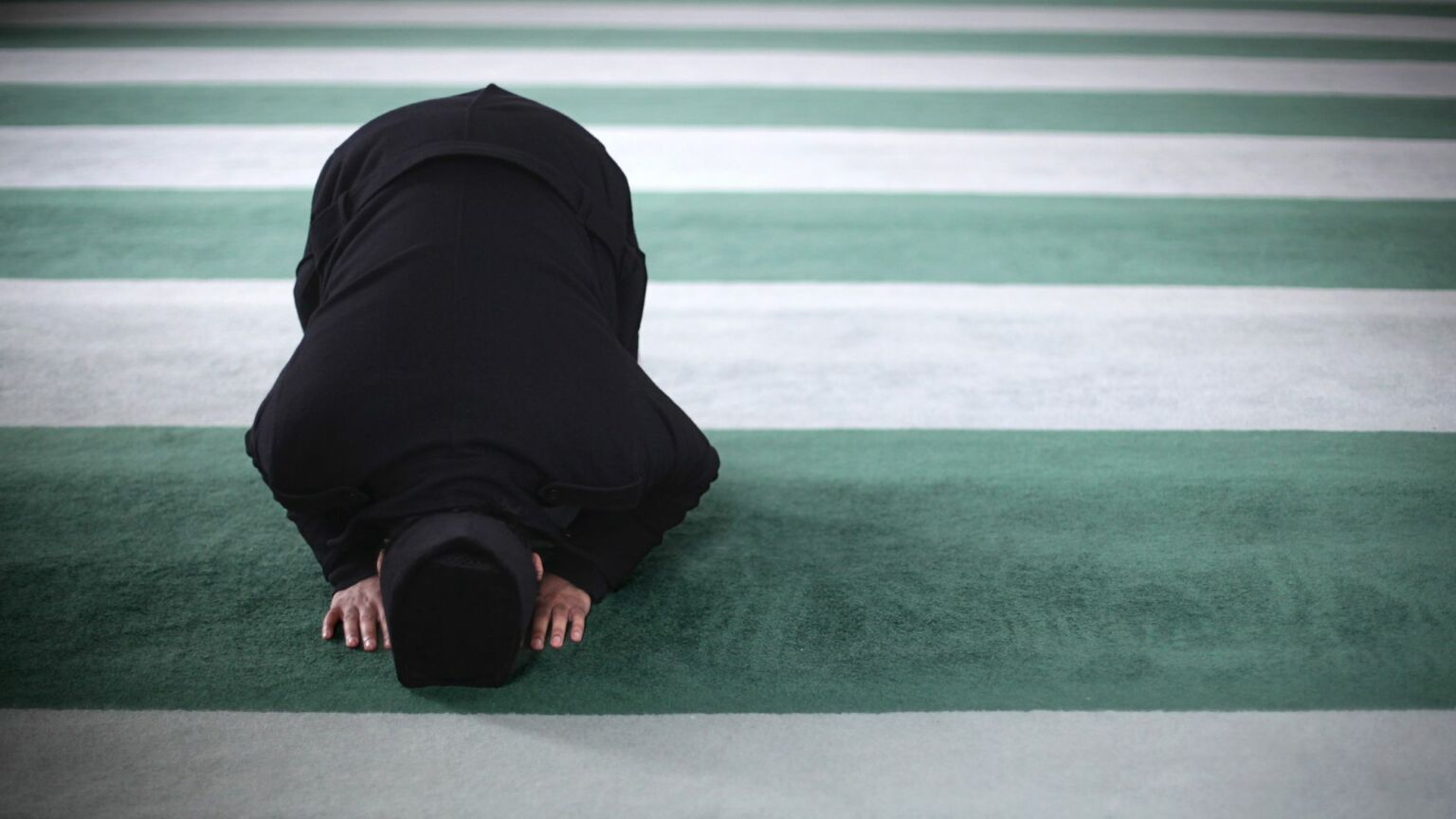The dangers of banning ‘Islamophobia’
Literally anything related to Islam would be ringfenced from criticism.

Want unlimited, ad-free access? Become a spiked supporter.
The definition of Islamophobia, put forward by the All-Party Parliamentary Group on British Muslims in 2018, has now been adopted by one in seven local authorities in England. It is likely to be taken up by more, particularly if the Labour Party wins the next General Election (Labour has itself adopted the definition for internal party matters). This is all happening despite the UK government’s refusal to adopt the definition, which it describes as ‘not fit for purpose’.
The APPG definition is as follows: ‘Islamophobia is rooted in racism and is a type of racism that targets expressions of Muslimness or perceived Muslimness.’
The problem with such a broad definition is that it can be invoked to shut down legitimate criticism of Islam as a religion, not just unacceptable prejudice towards Muslim people. Indeed, the authors of the APPG report dismissed the ‘the supposed right to criticise Islam’ as ‘nothing more than another subtle form of anti-Muslim racism’. In this way, a well-meaning effort to protect Muslim people from abuse ends stifling debate about almost anything connected to Islam. Teaching about the spread of Islam historically through war and conquest, criticisms of Islamic practices around women’s rights – particularly those made by ex-Muslims – and press coverage of Islamist terror attacks all have the potential to be labelled ‘Islamophobic’, according to the APPG’s definition. No other religion is granted this degree of protection in the UK.
The definition of ‘Islamophobia’ in the APPG’s report is so broad that, among other things, it means anyone disputing Hamas’s description of Israel’s military operation in Gaza as a ‘genocide’ is guilty of hate speech. Indeed, anyone who questions a group of Muslims, or a Muslim-majority state, when they claim to be experiencing ‘genocide’ is designated as an Islamophobe. As GB News reporter Tom Harwood recently pointed out, this would make Keir Starmer, who doesn’t accept that what’s happening in Gaza is a ‘genocide’, an Islamophobe. Anneliese Dodds, Labour’s shadow equalities minister, recently tried to publicly shame the Conservative Party for not subscribing to the APPG’s definition. She was seemingly unaware that, as a member of Labour’s front bench, her adoption of Labour’s official line on Gaza would make her an Islamophobe as well.
Recognising that the APPG definition risks suppressing public debate about the Israel-Gaza conflict does not mean condoning bigotry towards Muslim people. As the Network of Sikh Organisations has pointed out: ‘“Anti-Muslim’ hatred, (like “anti-Sikh” or “anti-Hindu” [hatred]) is much clearer language to describe hate crime specifically against the Muslim community.’ And, of course, it is already a criminal offence to stir up hatred against a group on religious grounds.
The terms ‘Islam’, ‘Muslimness’ and ‘perceived Muslimness’ are never explicitly defined by the APPG, so the definition can be easily exploited by those wishing to advance their own subjective interpretation of Islam. Is it ‘Islamophobic’ to say that Islam discriminates against women? Some would say it is, others would say it isn’t. Is ‘Muslimness’ defined exclusively by clothing and, if so, how does the APPG definition protect those Muslims who choose not to wear Islamic dress?
What’s more, by defining Islamophobia as a form of racism, the APPG definition wrongly implies that Islam is a race, rather than a multi-ethnic religion. In the APPG’s report, the meaning of racism is even expanded to encompass criticism of a ‘culture – broadly defined – that is perceived to be inferior’. Again, would it therefore be Islamophobic to criticise Islamic cultural practices?
Even bad behaviour that happens to be committed by Muslims would also be ringfenced from criticism. Journalists such as Dominic Kennedy and Andrew Norfolk have already faced accusations of Islamophobia for reporting on the grooming-gangs scandal. Adopting the APPG definition would further empower those, like Miqdaad Versi of the Muslim Council of Britain (MCB), who often complain of Islamophobia whenever the British media report on stories that he thinks reflect badly on Muslims.
The grooming-gangs scandal itself is indicative of a further problem with adopting the APPG definition: the abuse of vulnerable girls by mainly Muslim men of Pakistani heritage was ignored for too long by local authorities afraid to intervene, lest they be accused of Islamophobia. Similarly, counter-terrorism operations that depend on a frank assessment of the religious motivations of Islamist perpetrators would be imperilled by the widespread adoption of the APPG definition.
These issues came to the fore when, in 2019, the UK government appointed Qari Asim, imam of the Makkah Masjid mosque in Leeds, to advise on how best to tackle Islamophobia. Asim was removed from the role in 2022, after he called for The Lady of Heaven, a film about Muhammad’s daughter, to be banned. His call for censorship led the government to declare that it was ‘no longer appropriate’ for him to remain in post.
The adoption of the APPG definition by local authorities and our political parties – including Labour, the Liberal Democrats, the SNP, the Scottish Conservatives, Plaid Cymru and the Scottish Greens – has placed critics of Islam at risk of sanction. The suspension of anti-racist campaigner Sir Trevor Phillips from the Labour Party in 2020 due to accusations of Islamophobia is just one example. As Khalid Mahmood, the UK’s longest-serving Muslim MP, said at the time:
‘I’m afraid this whole episode has provided final proof – were any necessary – that the APPG definition of “Islamophobia” is simply not fit for purpose… If anything good is to come out of this sad – and frankly embarrassing – episode for my party, it is that it can hopefully serve as a wake-up call to those who believe that the APPG definition of Islamophobia represents any kind of basis for progress. It does not.’
In July 2021, Phillips was quietly readmitted to the Labour Party.
Steven Greer, a former professor of human rights at Bristol Law School (BLS), was not so lucky. Back in 2021, the University of Bristol Islamic Society (BRISOC) made a groundless complaint that Greer’s popular module, ‘Islam, China and the Far East’, was Islamophobic. Following this, Greer was subjected to a five-month investigation. Although he was eventually exonerated, BLS nonetheless cancelled his module on the grounds that: ‘It is important that Muslim students in particular do not feel that their religion is being singled out or in any way “othered” by class material.’
Greer, who was attacked in an online petition by BRISOC and whose physical safety was briefly imperilled by a suspicious incident outside his home, ultimately felt obliged to retire. BRISOC complained that Greer’s exoneration proves that the APPG definition of Islamophobia, which Bristol Law School has adopted, ‘seeks to protect no one and is wholly not fit for purpose in addressing our experiences of Islamophobia’ [because it has] ‘to be “balanced” with “academic freedom”’. In other words, it is not sufficiently censorious!
In this, BRISOC is wrong. The APPG definition of Islamophobia is deeply censorious and has been used – and will continue to be used – to stifle satire, open debate and any criticism of Islamic ideology. It must be resisted.
Tim Dieppe is head of public policy at Christian Concern and the author of the Free Speech Union’s latest briefing paper, Banning Islamophobia: Blasphemy Law by the Backdoor.
Picture by: Getty.
You’ve hit your monthly free article limit.
Support spiked and get unlimited access.
Support spiked and get unlimited access
spiked is funded by readers like you. Only 0.1% of regular readers currently support us. If just 1% did, we could grow our team and step up the fight for free speech and democracy.
Become a spiked supporter and enjoy unlimited, ad-free access, bonus content and exclusive events – while helping to keep independent journalism alive.
Monthly support makes the biggest difference. Thank you.











Comments
Want to join the conversation?
Only spiked supporters and patrons, who donate regularly to us, can comment on our articles.